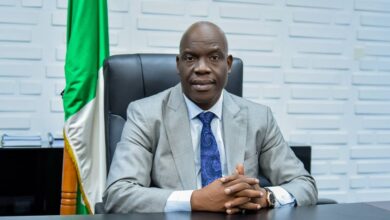DSTV Price Hike: Anti-Business People, Opportunistic Government

There are a few things that rile educated Nigerians like the decision of Multichoice, the company behind DSTV and GoTV, to increase the prices of its various bouquets. Every time this happens, this class of Nigerians complains and protests. And the recent price hike announced in March 2022 has not been any different. The new price list shows an average of 15% increase across the different DSTV bouquets. If you are keeping track, Nigeria’s inflation rate is currently 15.7, so there is a message here. In a statement, Multichoice said, “in the light of rising inflation and the cost of business operations, we have had to review the price of our packages…”
“The National Assembly, ever ready to dabble into things its members barely understand, has directed Multichoice to slash its prices as if the parliament is the board of directors of the private company”.
While the price hike is within the inflation rate every Nigerian individual and business is facing, many people are trying to stop Multichoice from adjusting its prices to address its business reality. A federal government agency, the Federal Competition and Consumer Protection Commission (FCCPA) is already investigating this new increment as it has done repeatedly in the past. The National Assembly, ever ready to dabble into things its members barely understand, has directed Multichoice to slash its prices as if the parliament is the board of directors of the private company. The senate president Ahmad Lawan even went further to accuse Multichoice of exploiting its subscribers, claiming, erroneously, that “what DStv is doing here, they can’t do it in many countries.” The parliament is already planning to hold a public hearing on this issue.
Social media, especially Twitter, is also agog with Nigerians up in arms against the increment. Their most interesting and most ridiculous argument goes thus: Nigerians are living under tough living conditions and therefore Multichoice should make its services cheap. It is concerning that this view is being pushed by educated Nigerians in and out of government. It is precisely the harsh conditions in Nigeria that have made it imperative for the cable TV company to charge more for its services to cover all the costs that have risen significantly in the last year.
Also Read: Big Money: MultiChoice Raises BBNaija Prize to N90 Million
It should be obvious to these individuals and government agencies that they cannot enjoy cheaper cable TV when the cost of doing business in Nigeria has gone up, most noticeably energy costs. The further devaluation of the naira forces any company charging in naira but importing its equipment and services to charge more in naira to be able to pay for these imported goods and services. The cable TV companies’ business relies heavily on foreign exchange as they pay for the various shows, especially the sports events that Nigerians are so obsessed with.
It is important to point out that the cable TV business is not a particularly profitable business in Nigeria, contrary to what many Nigerians might think. According to its publicly available financial reports, Multichoice has been running its businesses at a loss for the last few years. The prices it charges here are cheaper than what it charges in its home country of South Africa, and in other major economies like Ghana and Kenya.
In any case, cable TV is a luxury anywhere in the world. It is neither food nor water. Cable TV offers entertainment and information, two things that could be enjoyed in other media and platforms. If watching European football at home proves too expensive, one can head to a football nearby to watch live football. Radio and terrestrial TV still provide news, and so do newspaper reading joints spread across our cities. Moreover, Nigeria does not lack cable TV companies competing with Multichoice, and consumers who find Multichoice too expensive can try its competitors including Startimes, co-owned by the federal government. Multichoice itself offers different bouquet ranging from N1000/month bouquets to N21,000 bouquets. Consumers have choice! The protest against this price hike is therefore misplaced and reeks of anti-business posturing.







